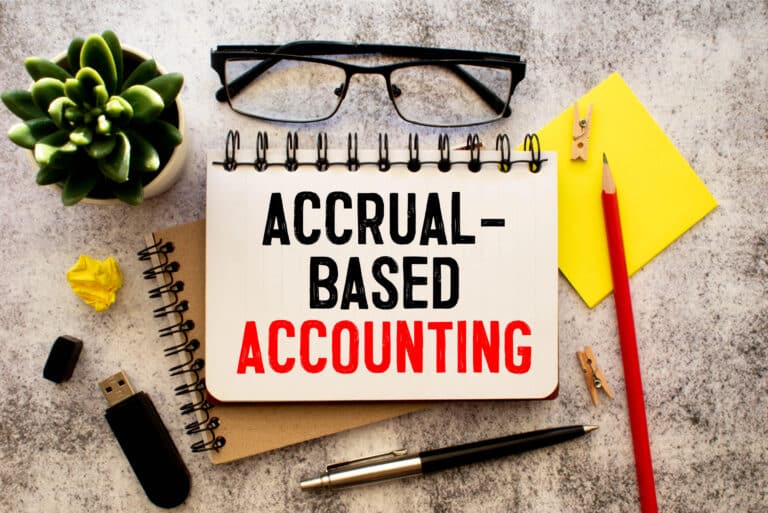Estimated reading time: 7 minutes
- Context Regarding the Accounting Profession
- Next Steps and Expectations for Your Bench Accounting Migration
- Need a new accounting partner?
- Other Questions You Might Have About Your Bench Accounting Migration:
- What do I pick first? An accounting software or an accounting firm?
- How much should I budget for accounting services?
- How can I ensure continuity in my financial reporting and tax compliance while transitioning away from Bench?
- How can I verify that my most recent financial statements, tax documents, and other critical records are accurate and complete?
- How do I evaluate which accounting option is best for my business?
- What happens if there are discrepancies discovered in my historical records after Bench is no longer available?
- Conclusion
Bench Accounting shutdown yesterday and provided notice to their customers. This sent shockwaves through the accounting industry. Depending on the article you read, Bench served anywhere between 11,000 and 35,000 small businesses with bookkeeping and tax services. Yesterday, I wrote a LinkedIn post, most of which is included in this post, which attempted to help small business owners take the next steps. In this post, I would like to expand on those thoughts to help business owners with their Bench Accounting migration.
Context Regarding the Accounting Profession
Before getting into the meat and potatoes of the topic, I think a little context is important.
Accounting is not cookie cutter
Humans are not cookie cutter. Humans run businesses. Therefore, businesses, especially small businesses, are not cookie cutter. So, accounting for small businesses also can’t be cookie cutter.
Accounting, Even Tech-Enabled Accounting, Is Expensive to Do Well
Accountants are expensive to hire, partly because there’s a large shortage that’s not going to be “fixed” anytime soon. Therefore, either the services that they provide will be expensive or their time will be watered down.
According to ZipRecruiter, starting salaries for entry-level accountants, meaning somebody with no, or almost no, experience, range from about $40,000 to $62,000. Add in payroll taxes, benefits, cost of software, etc. and those folks are expensive to employ. Then, layer on the cost of supervisory and senior level team members. Then, divide all of that by the number of businesses an accountant can handle, and you’ve got a pretty decent monthly fee already. Never mind that doesn’t account for any profit to the accounting firm. Our firm is very tech-enabled and we can only reasonably expect a bookkeeper to service around 20 businesses, 30 max, depending on the type of businesses.
TL;DR most businesses should not expect to pay a couple hundred dollars per month for quality accounting. Emphasis on quality.
Advisory Doesn’t Scale
Advisory services generally don’t scale. The advice that your SMB needs is not a scalable service as it generally requires the expertise of a seasoned professional. Seasoned professionals are expensive. Plus, good advisory comes from having a relationship. Relationships take time to build and the time of highly qualified professionals is expensive.
Some will say: “I’ll plug my financials into ChatGPT and it’ll tell me what to do.” Sure. I promise you, when your business has a cash flow crunch and you’re trying to figure out which vendors to pay and how to navigate those conversations, you won’t get a lot of comfort from ChatGPT.
Next Steps and Expectations for Your Bench Accounting Migration
Here’s what I would be thinking about if I were a small business owner that used Bench:
- Bench has said that they’re going to give you access to your data on 12/30. I’ve never used Bench and I’ve never explored their platform, so I don’t know what they make available. Plus, it seems the site is down so I am shooting in the dark here. However, here’s what I would be looking to download:
- Trial Balance from the date you started working with Bench.
- Profit & Loss Statement from the date you started working with Bench.
- Balance Sheet from the date you started working with Bench.
- General Ledger from the date you started working with Bench.
- Audit Log, if available.
- Account reconciliation reports, if available.
- Also download and store any chat support conversations and emails. You may need these later for tax purposes, and/or for your new accounting partner to figure out what’s been going on with your bookkeeping.
- Gather copies of your bank and credit card statements, going back to when you started working with Bench. You’re next accountant is likely going to need these.
- Gather copies of your tax returns, going back to when you started working with Bench, whether or not they filed your returns for you or somebody else did.
- Plan on extending your tax return. Your accounting for the year is likely not done, and you’ll be looking for a new accounting partner at their busiest time of the year. Extensions are not bad and they give you more time to get it right.
- Move to a general ledger (GL) software plus an accounting provider, not an accounting provider that’s also a GL software. Some companies, like Bench, have their own accounting software. This makes it difficult when they a) shutdown, like in this case, or b) you decide to move to another accounting provider. Instead, I’d recommend finding an accounting partner that supports a popular and portable platform, like QuickBooks Online, FreshBooks, Xero, Zoho, etc. For more recommendations on a potential tech stack, check out this blog post. However, the first place you’ll need to start is with the GL.
As it pertains to the data you’ll be exporting from Bench, where possible, try to get it monthly (e.g. – a P&L that shows months as columns) and in Excel format. This will make your life, and your new accountant’s life, easier during the transition.
Other Questions You Might Have About Your Bench Accounting Migration:
What do I pick first? An accounting software or an accounting firm?
Pick an accounting firm that you like and trust, first. They will likely have one or two recommendations on the technology that you will need and that they’re experts in. In a perfect world, it shouldn’t matter much to you and you shouldn’t be spending much time in the accounting tech, anyway. What you really care about is getting the information you need when you need it.
How much should I budget for accounting services?
Professional services, including accounting services, are generally “get what you pay for.” In the case of accounting services, you’re going to pay for it one way or another – whether it’s to later cleanup suboptimal bookkeeping, or a higher tax bill because of misclassified transactions, or the opportunity cost of not being able to make decisions for your business. We recommend budgeting between 2 and 5 percent of your gross revenue for your finance function.
How can I ensure continuity in my financial reporting and tax compliance while transitioning away from Bench?
You likely won’t be able to ensure 100% continuity. The timing of the Bench Accounting shutdown is extremely unfortunate: 1) it’s between two holidays, so people are on vacation, 2) it’s before the end of the year, so your books likely aren’t completed for the year, 3) it’s about 3 weeks before most accountants get incredibly busy and 4) the Bench platform is proprietary, so porting that data to a new GL and ancillary systems will not happen “with the click of a button.”
The best thing you can do is 1) get as much of your data as you can, 2) start looking for a new accounting partner ASAP and 3) be patient.
How can I verify that my most recent financial statements, tax documents, and other critical records are accurate and complete?
This is part of the reason why I said you should start gathering your bank and credit card statements. You’ll want to lean on your new accounting provider to tell you whether or not everything seems to be in good order. However, if you’re really curious in the meantime, below is a webinar that I did about how to tell if your bookkeeper is doing a good job that will get you started.
How do I evaluate which accounting option is best for my business?
I did several YouTube videos on this topic, too. Below is a link to the playlist, which includes three videos, all of which are a few minutes long. The basic gist is find somebody you trust that has experience with businesses that are similar to yours.
What happens if there are discrepancies discovered in my historical records after Bench is no longer available?
This is very much an “it depends” question. It depends on the nature and the severity of the discrepancies that are found. Bookkeeping errors are relatively easy to fix. Tax filings are generally also fixable, but more of a hassle. Again, lean on your new accounting partner to tell you what your course of action should be if anything unusual is found. You should also expect that your new accounting partner will need a power of attorney with the IRS and state agencies.
Conclusion
In closing, The Bench Accounting shutdown is a terrible thing. Not only for the business owners that it’s impacting, but for the many employees that worked there who lost their jobs and for the accounting profession as a whole. It’s likely going to be a tough few months if your business was impacted by the shutdown. However, find yourself a new accounting partner that you trust, be patient, and work through the migration together. Hopefully the thoughts and resources above will help you do that.




